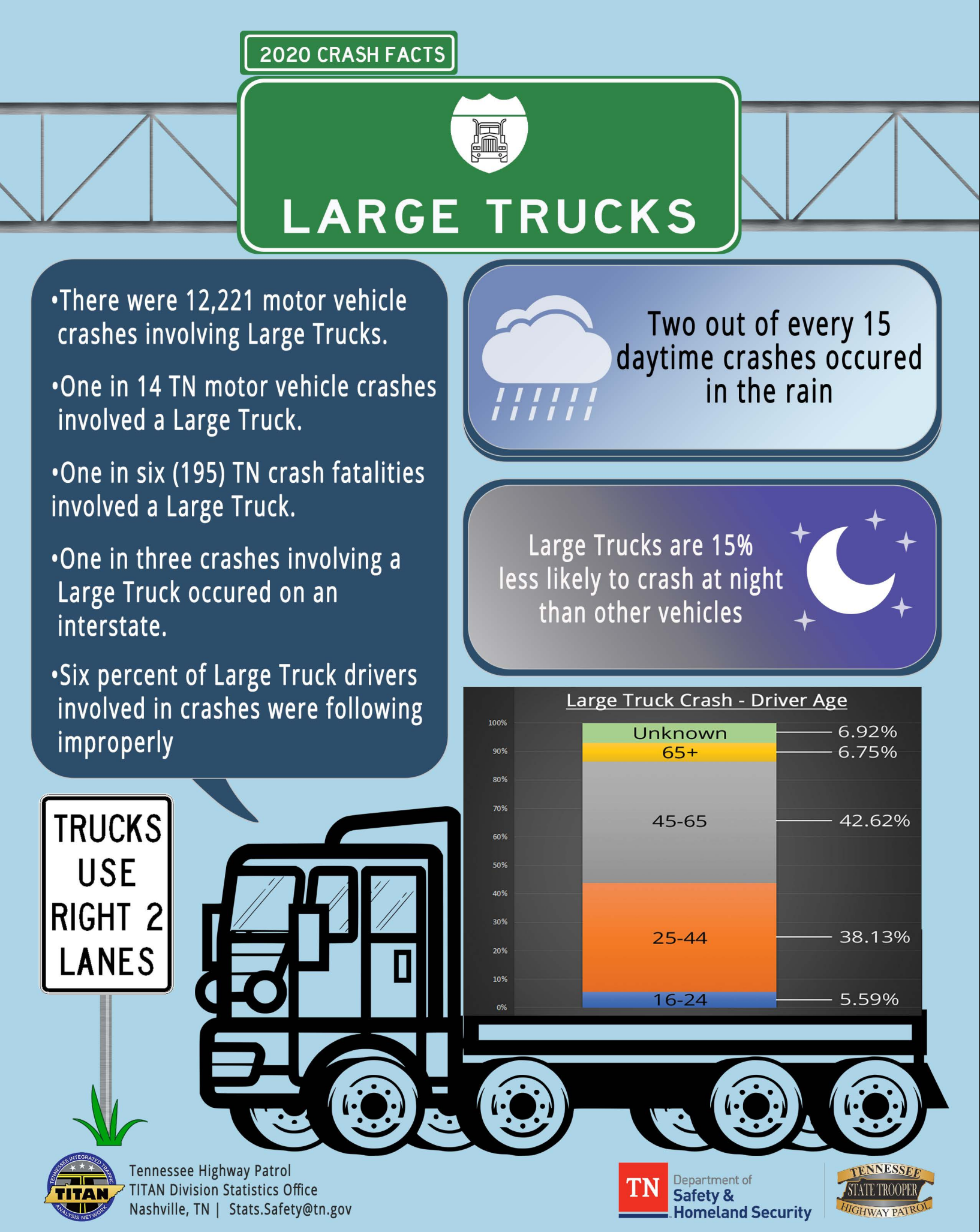Imagine you’re driving down I‑24 near Monteagle Mountain. The grade steepens, and suddenly you see a semi gaining fast in your rearview mirror. It’s a reminder that even routine drives can turn risky around large trucks.
In Tennessee, about 1 in 14 motor vehicle crashes involves a large truck, and 1 in 6 crash deaths includes a truck, often on rural or interstate roads at high speed. It’s a serious issue, but understanding the risks can help you stay safer. This post is the first in our series, Trucking Dangers & Safe Driving Around Big Rigs. Later, we’ll cover sharing the road, what happens after a crash, and why claims get complicated.

1. Driver Fatigue
The Federal Motor Carrier Safety Administration (FMCSA) found that fatigue contributes to around 13% of serious commercial vehicle crashes, and it’s a bigger factor than alcohol or drugs in fatal wrecks.
(FMCSA Hours of Service Fact Sheet)
How to stay safe: Give trucks extra space at night or early morning when fatigue is more likely. Don’t linger in blind spots, and pace yourself around trucks with plenty of room.
2. Distracted and Reckless Driving
National crash data shows that distracted driving, speeding, and unsafe maneuvers are among the most common contributors to large truck crashes. In many cases, distraction behind the wheel, following too closely, or making abrupt lane changes by truck drivers or passenger vehicles sets off chain reactions that lead to serious accidents.
How to stay safe: Don’t cut off trucks. Always signal early, assume they need more time to react, and leave yourself an escape route.
3. Mechanical Failures
Brake failures, tire blowouts, and steering problems are frequent causes. Federal data shows vehicle-related factors appear in about 4% of fatal truck crashes.
How to stay safe: If you see smoke, wobbling tires, or hear odd noises, back off immediately. Avoid following closely behind large trucks.
4. Road and Weather Conditions
Nationwide, more than one-third of fatal truck crashes happen at night, and many occur on rural or interstate roads. Weather, poor visibility, and steep downgrades all raise risks. In Tennessee, Monteagle Mountain on I-24 is infamous for runaway truck crashes.
How to stay safe: In bad weather, increase your following distance. On steep grades, avoid staying directly in front of heavy trucks.
5. Cargo Loading and Shifts
Improperly loaded or unsecured cargo can shift, spill, or even cause a rollover. Federal data highlights how these issues play a role in serious accidents.
How to stay safe: If you notice loose tarps, shifting loads, or falling debris, steer clear and report it if safe to do so.
6. Impairment and Violations
Although less common than fatigue, impairment from alcohol or drugs is still a factor. The FMCSA enforces strict drug and alcohol testing rules, but violations do occur.
How to stay safe: Stay alert for swerving, drifting, or inconsistent speeds. Report erratic driving if you can do so safely.
Wrap-Up
The leading causes of truck accidents include fatigue, distraction, mechanical failures, weather and road conditions, cargo issues, and impairment. By knowing these risks and adjusting your driving, you can help prevent crashes.
This post is the first in our Trucking Dangers & Safe Driving Around Big Rigs series, where we’ll continue to share practical safety tips for Tennessee drivers.
If you or a loved one has been injured in a crash, Stillman & Friedland is here to help. Call 615‑244‑2111 or reach out through our online contact form.
Because we care,
Stillman & Friedland







